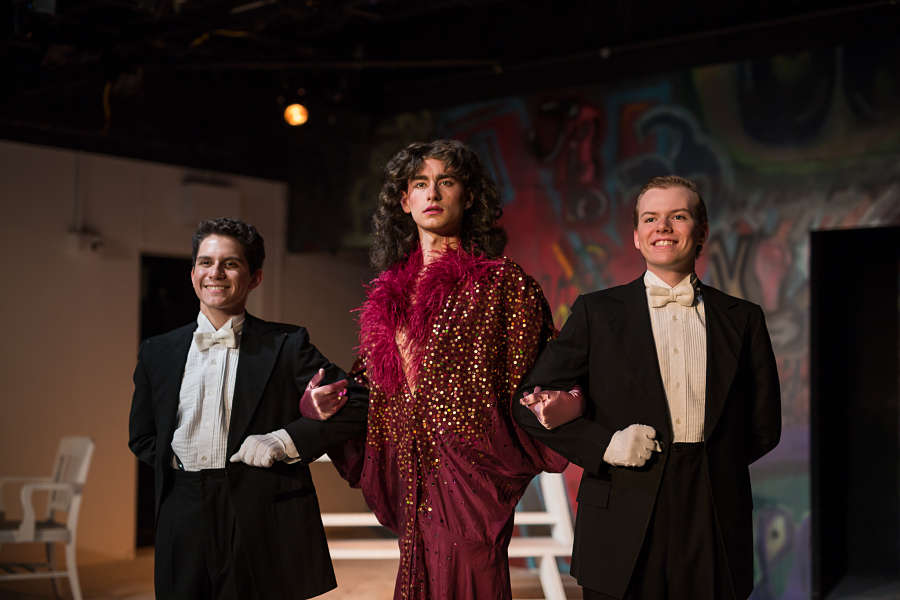This response is written in reply to Doug Cooney’s American Theatre opinion piece, “Why I Stopped Teaching ‘Angels’ to Undergrads.” We are a group of current students at Boston University’s School of Theatre who recently studied Angels in America, Part One: Millennium Approaches as part of our Contemporary Drama curriculum. During our examination of this text, not only did we gain greater insight into Tony Kushner’s play, we used it as a platform into our studies of the contemporary theatrical landscape as a whole.
Cooney writes that a reason for his student’s disengagement is that “today’s millennials are fully two generations removed” from the events of the play. This argument implies that any study of history, outside of our current moment, is beyond the scope of understanding and therefore unworthy of investigation. What is the purpose of higher education—particularly the study of theatre—if not to uncover truth beyond our own experiences? Undoubtedly this is a difficult text to teach, but in doing the “heavy lifting” and educating students on how to do the research necessary for Angels in America, teachers give us the invaluable tools needed for diving into other contemporary plays.
The history inside of this great play doesn’t just belong to its author, or to Mr. Cooney, or to anyone who lived during that time. The history and themes within Angels in America—including the AIDS crisis, Ronald Reagan, and Roy Cohn—directly impact the lives of students living in America today. As BU sophomore Ben Lenk puts it, “Even if I cannot literally remember the policies under Reagan, many of us still feel their effects. As a gay trans man I constantly mourn those who have died before me. I feel the effects of losing a generation of our forebears. Reagan is not a dinosaur to us, he is a ghost.”
We wish to emphasize the importance of keeping this play alive in the classroom. Mr. Cooney, we urge you to credit your students with a deeper empathic sense of the world, as we are hungry for teachers to engage us with material that surprises with its relevance and challenges us to dig deeper.
In your writing, you affirm what we all believe: that it is imperative that educators hold space for their students to question deeply, argue passionately, and take ownership over the text in hand. We urge you to investigate ways into this text and, for the sake of your students’ education, seek out the answers to your questions.
Sincerely,
Shawna M James, Jillian Robertson, Sara Katzoff, Desiré Graham, Línda Perla, Elena Morris, and Ben Lenk


